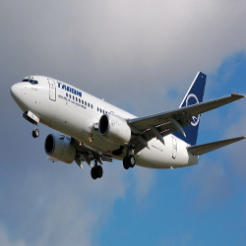The issue that concerns the British public the most about whether a charity is applying donations prudently is whether members of staff travel first class, according to research by nfpSynergy.
In data compiled as part of nfpSynergy’s Charity Awareness Monitor, which posed a variety of charity-related questions to 1,012 Britons aged 16+ nationwide on 11 November 2011, 55 per cent of those asked the question ‘Would knowing any of the following about a charity make you feel confident that they would spend a donation well?’ selected the option ‘No member of staff ever travelled first class on expenses’.
The next most popular choice was whether anyone in the charity is paid more than £50,000 per year (46 per cent), followed by if no one gets a bonus (43 per cent). The lowest concerns were whether all members would work for free one day a month, with 8 per cent, and if all new staff were unpaid for their first month, with only 3 per cent.
Seven per cent of respondents said that nothing at all would make them feel confident that a charity would spend their donation well.
Respondents were allowed to select up to five answers from the following (with the percentage each answer was chosen in brackets):
- No member of staff ever travelled first class on expenses (55 per cent)
- Nobody in the organisation is paid more than £50,000 a year (46 per cent)
- Nobody gets a bonus (43 per cent)
- The charity is mostly run by volunteers (42 per cent)
- Nobody in the organisation is paid more than £100,000 a year (37 per cent)
- All administration costs are paid for by Gift Aid money claimed on donations (29 per cent)
- Staff pay for their own Christmas party (21 per cent)
- All photocopying was on recycled paper (18 per cent)
- No offices in London (16 per cent)
- No printing was on glossy paper (eleven per cent)
- All staff members work for free one day a month (eight per cent)
- All new staff are unpaid for their first month (three per cent)
- Other (two per cent)
- Not sure (ten per cent)
- Nothing would make me feel confident they would spend a donation well (seven per cent)
Joe Saxton, founder of nfpSynergy, thinks that what stands out from these results is how simple it could be to give donors confidence.
"I'm sure the majority of charity employees do not travel first-class," he said. "Our responses suggest that the public would be easily reassured if organisations made it visible that they do not, in fact, partake in the actions that people find so disagreeable.
"For instance, they could state in their documentation that they do not use donor money for luxury excursions, they aren't paid huge wages, they don't get bonuses, and so on. They could make a virtue out of these facts.
"We see from this research how people respond to factors that they can relate to – it's similar to the MP expenses scandal, where members of the public reacted angrily to the idea that those in privileged positions were exploiting public money for additional homes and other tangible benefits."









